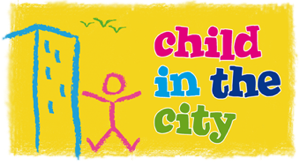Parallel session: Right to play (09:30-11:00)
Presentation 1: Assessing the Play Value of a Play-based Children’s Zoo
Presented by: Rick Worch
Abstract: Most public playgrounds in the United States consist of stationary structures, such as swings, slides, and monkey bars. While children may have fun playing in such playgrounds, there is little to stimulate their imaginations, creativity, and complex problem-solving. In parts of many urban areas in the USA, like Toledo, Ohio, children live in under-resourced, unsafe neighborhoods in which the only play spaces are parking lots, streets, barren lots, and abandoned houses. Thanks to a publically-supported tax levy, the Toledo Zoo was able to construct a 0.5-hectare, play-based children’s zoo called Nature’s Neighborhood. To help all Toledo families enjoy their zoo, admission is free every Monday. This presentation describes the process of assessing Nature’s Neighborhood’s play value in terms of its potential to encourage children’s behavioural flexibility, creativity, freedom of choice and mobility, physical activity, social interaction, and intellectual stimulation. The assessment shows Nature’s Neighborhood to be a patchwork of moderate and high-value play spaces. The implications of the findings for playground designers will also be discussed.

Presentation 2: A fine Article! UNCRC Article 31; the child’s right to play– The benefits and challenges involved in the creation of a child-friendly, playful city
Presented by: Debby Clarke
Abstract: In 2012 Dublin City Council launched the Dublin City Play Plan; ‘Play Here, Play there, Play Everywhere’ 2012 – 2017 and became the lead agency in Ireland regarding the development of a multi-agency play plan. This was shortly followed by the development of an implementation strategy to turn the vision of the plan into reality; Dublin will be a child-friendly and playful city where all children and young people can enjoy their right to play. This paper will present a critical investigation into progress made to date and will pay particular attention to 1. The relationship between progress made to date and the key recommendations from UNCRC General Comment 17. 2. What can be learned from the Welsh Government (2010) Play sufficiency Duty with specific reference to policy framework and guidance to support Local Authorities in assessing and securing a sufficiency of play opportunities? 3. Possible implications from points 1 and 2 (above) in shaping the Implementation of the Dublin City Play Plan from 2017 onwards. The paper will also explore recommendations and a key set of actions to be included within a meaningful implementation strategy of a multi-agency play plan. Participating in this process has provided Dublin with the opportunity to appropriately address the issue of ‘Play’ for its young citizens. Subsequently, Dublin City Council will continue to consult with children and young people in order to review the progress of the plan’s implementation and challenge the thinking around what play is and what it means to be a child-friendly and playful city.

